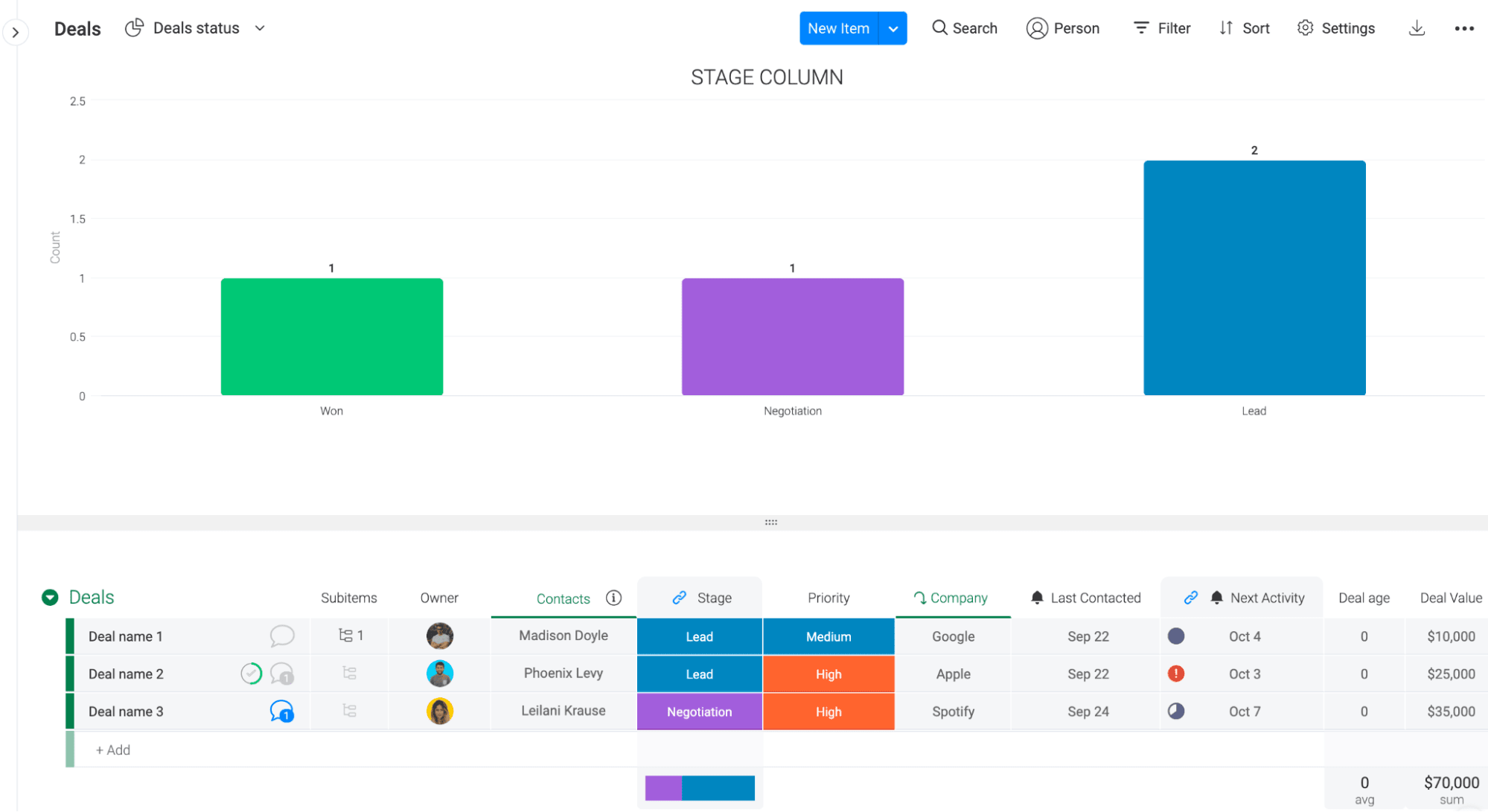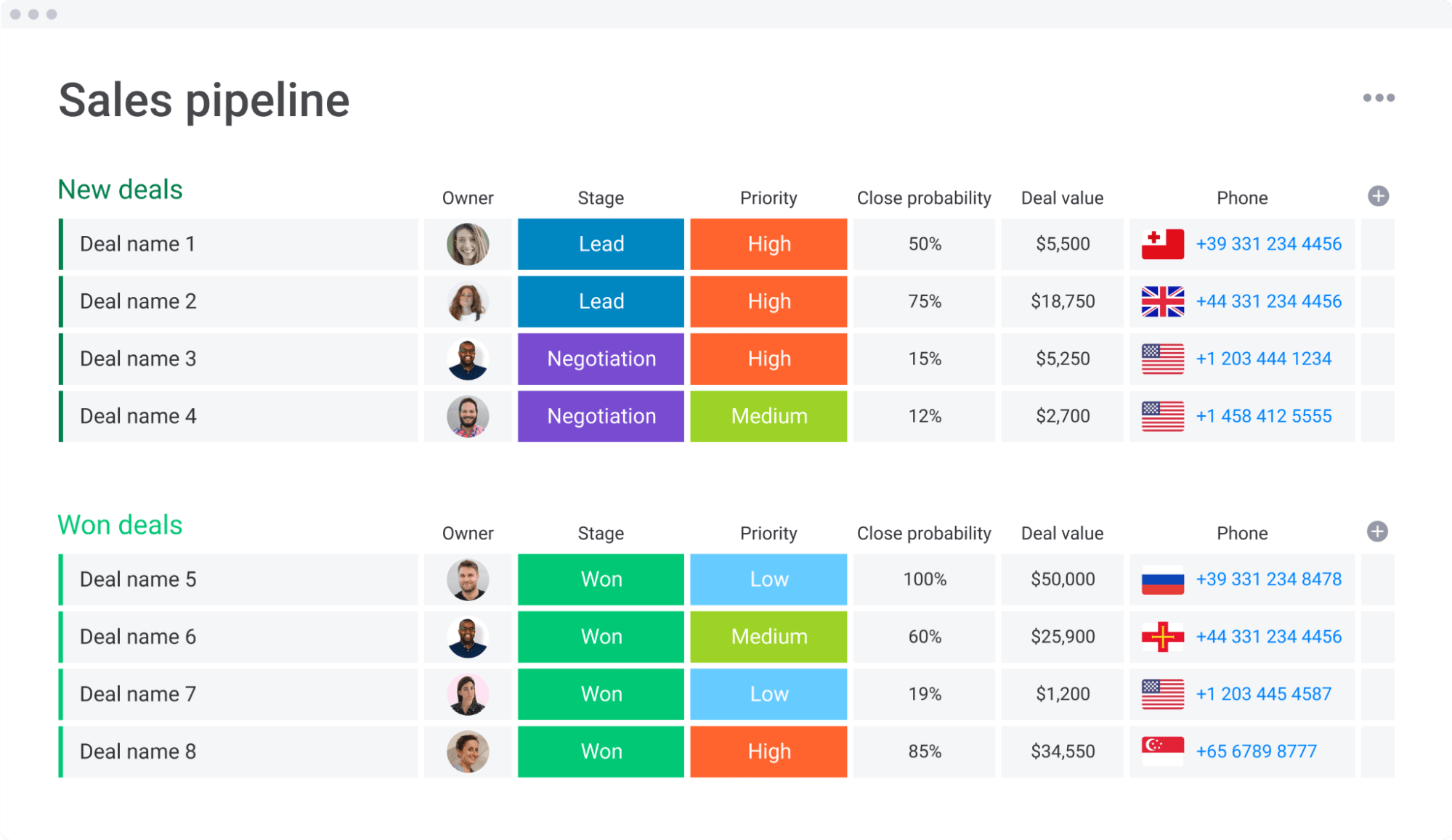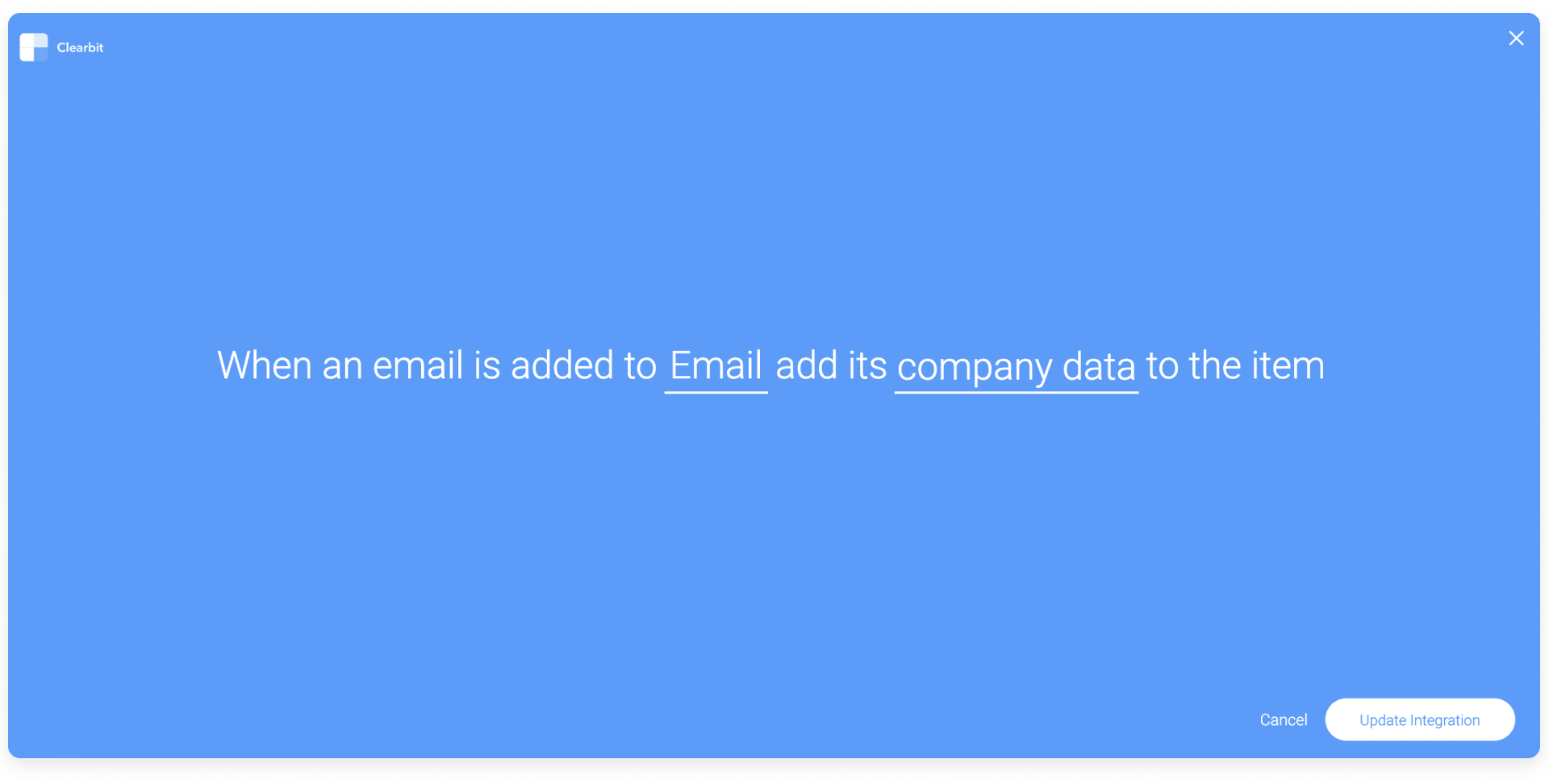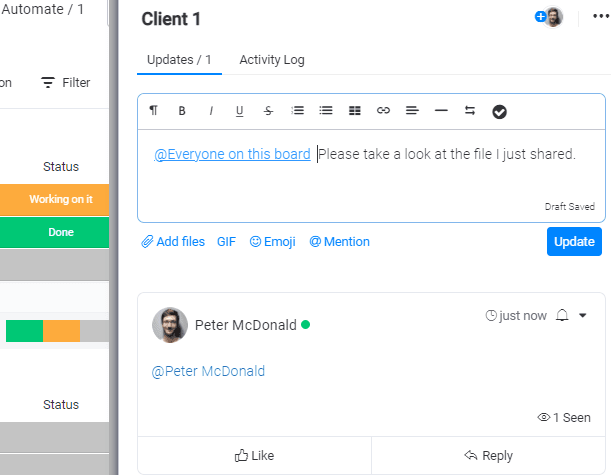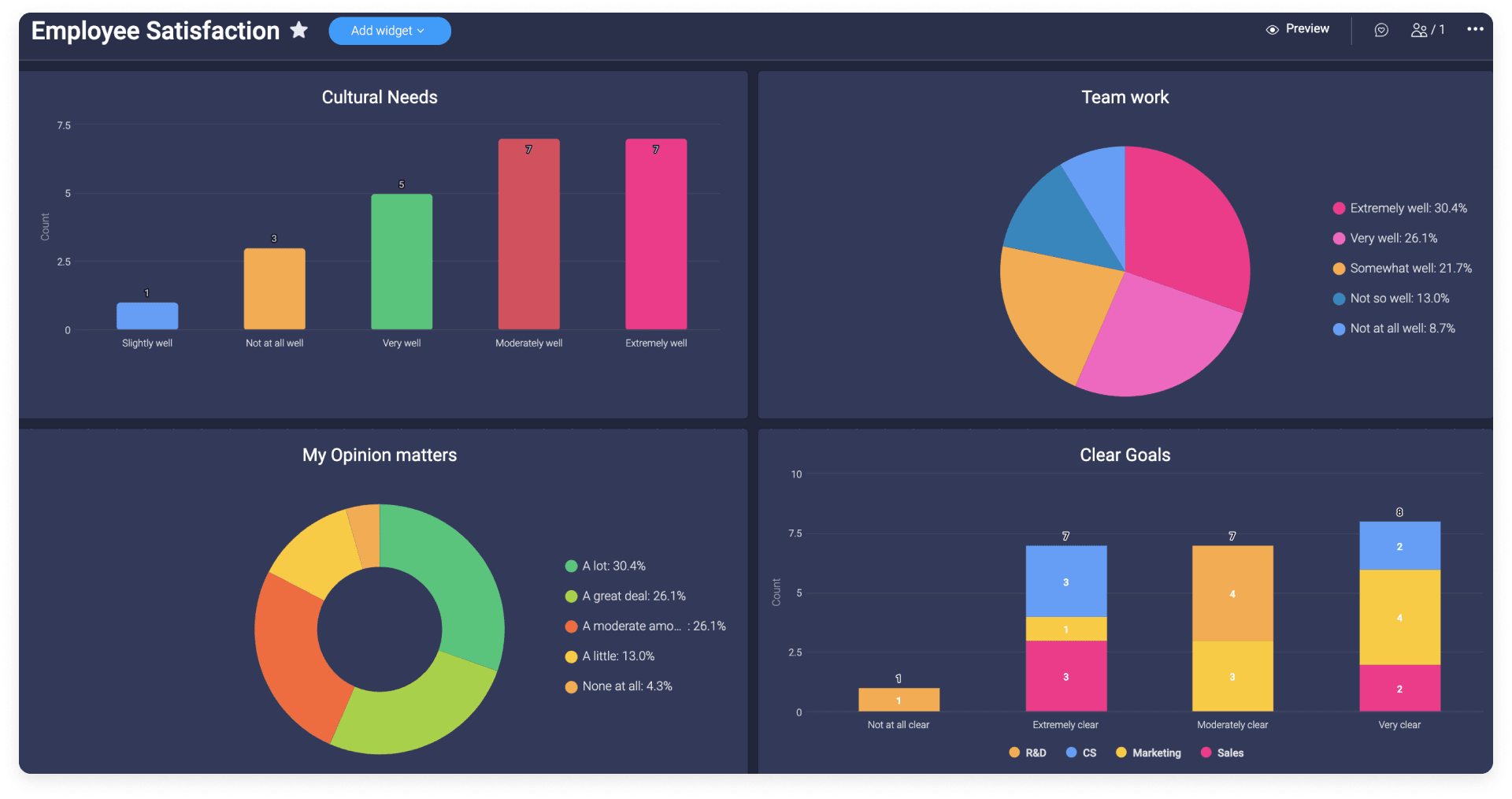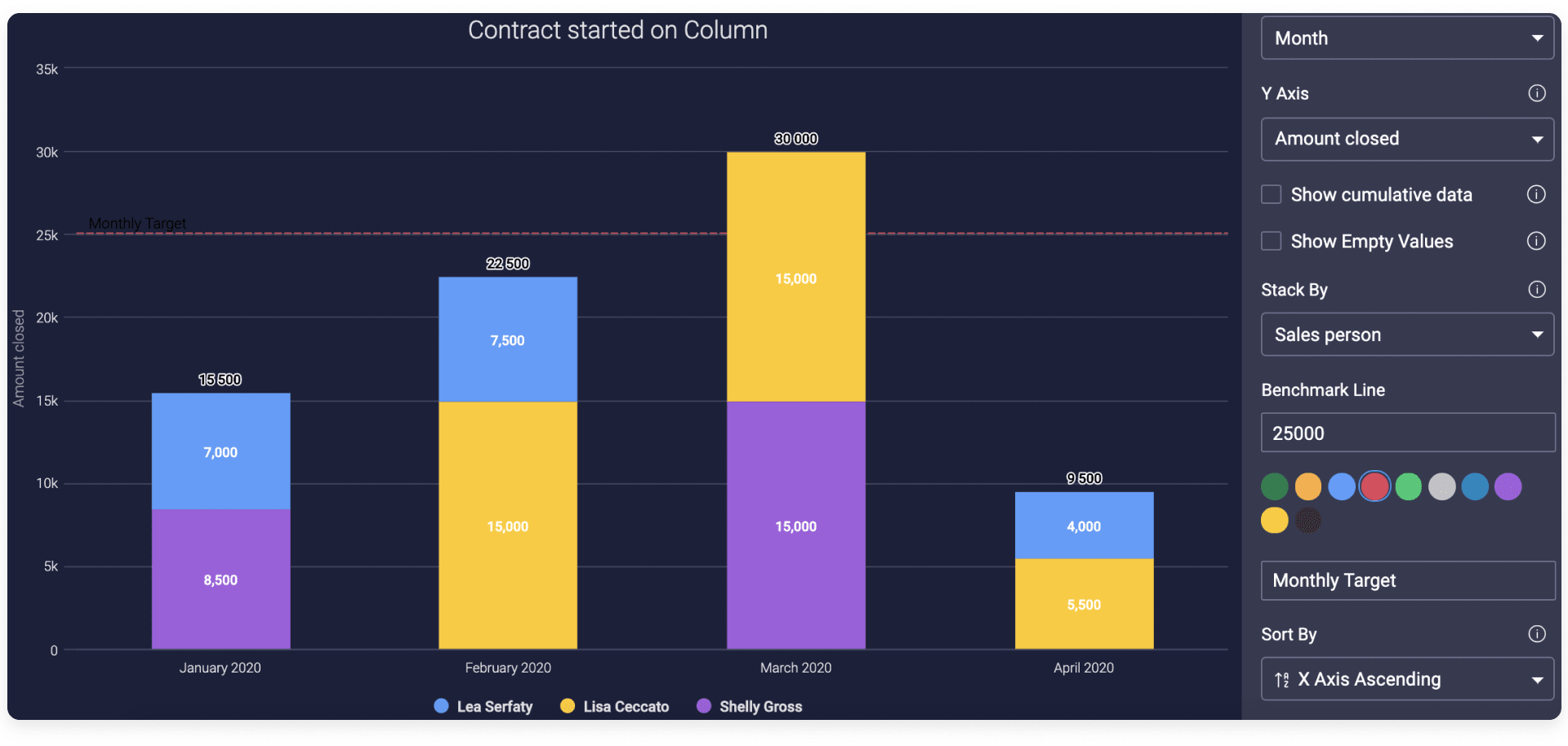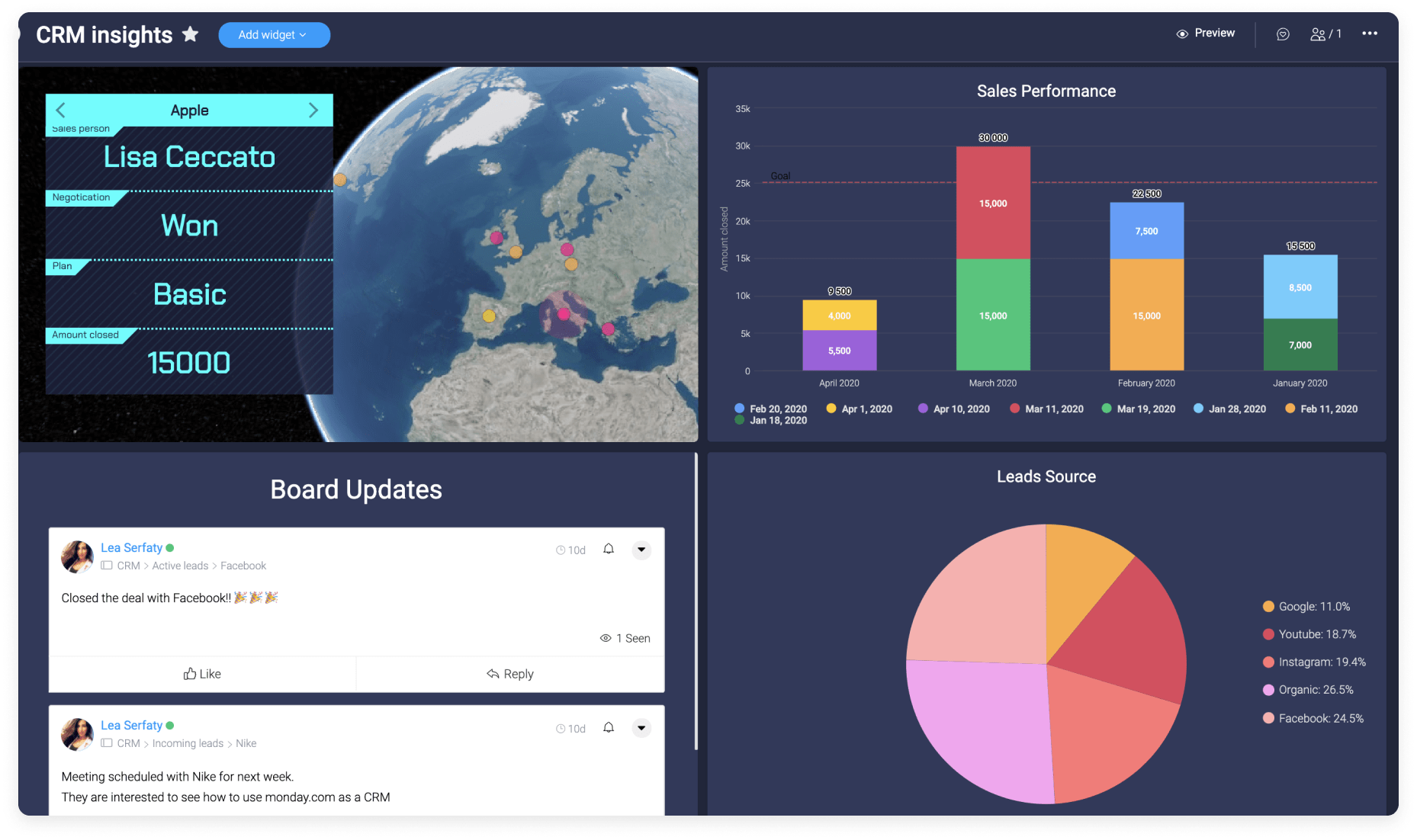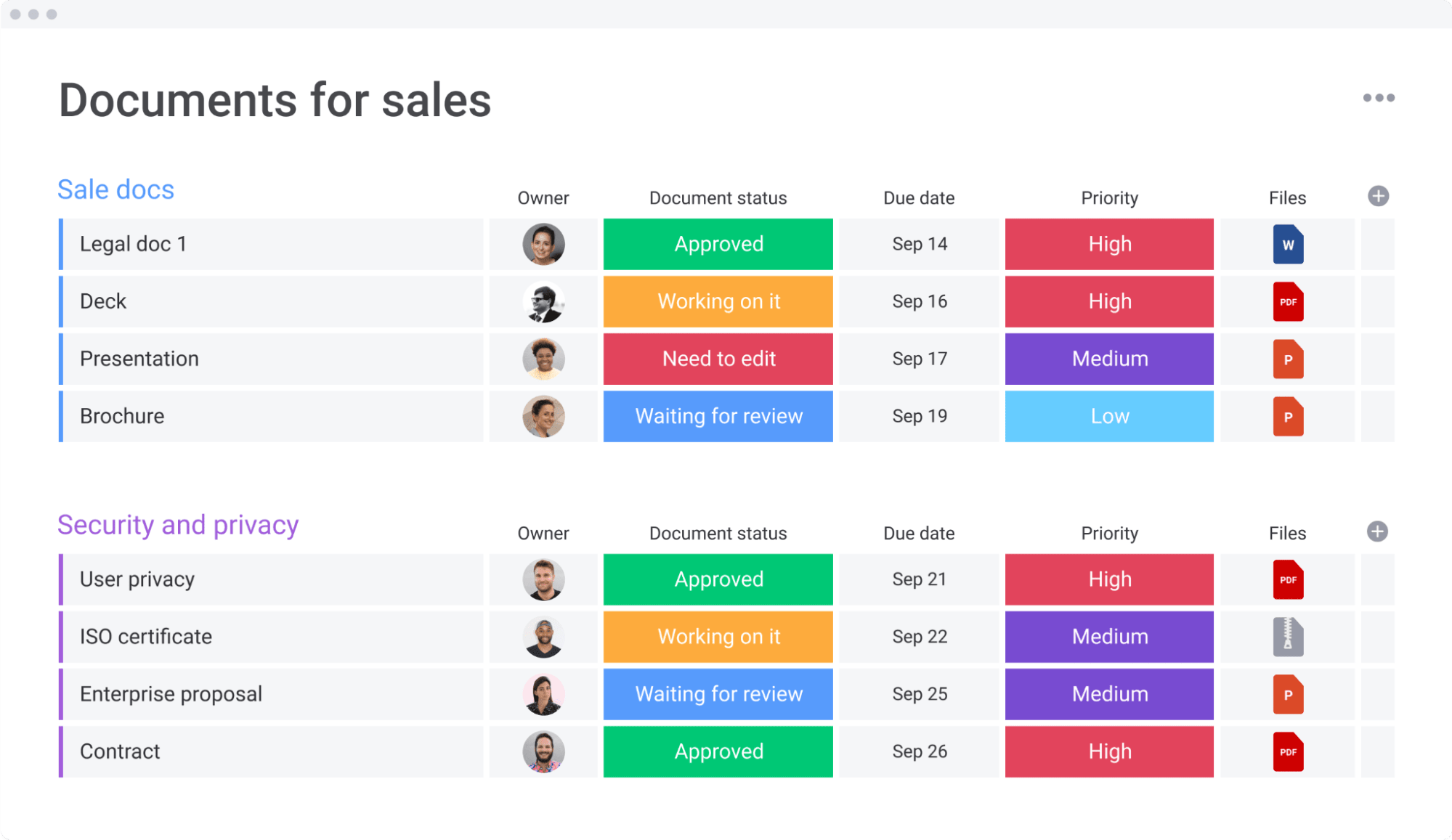What is a sales representative? What does this job really entail and has it changed much in the past 10 years? Whether you’re a job seeker, someone who want to see how your communication skills could be translated into a new career path, or simply a member of an organization that wants to learn from your peers, you’ve come to the right blog.
Sales representatives play a huge role in modern organizations, as they’re directly involved in the generation of revenue. In this article, we will discuss the sales representative role, how it has evolved, and how you can become a more efficient sales representative using monday.com.
What is a sales representative?
Sales representatives sell a product or service to businesses, organizations and government agencies, rather than selling directly to consumers. This could include anyone from enterprises to manufacturers and wholesalers, who could find these products as a solution for their challenges.
What are the four basic skills of a sales representative?
Effective salespeople know that sales is about understanding the customer’s needs and building a bridge between your product and those needs. The more empathy you have toward your prospects, the better sales rep you’ll become.
Four fundamental skills every sales representative needs are:
- Communication skills: This is includes both how you listen and what you say. It’s crucial to be able to clearly understand the other person’s problem and speak to them—on whatever platform— in a way that resonates with them.
- Public speaking skills: Sales representatives could be charged with speaking with either new clientele or existing customers, so having the tact and confidence for both tasks is a must-have for any effective salesperson.
- A knack for negotiation: In addition to communicating your value proposition clearly and concisely, you must be prepared to be met with pushback and navigate this well.
- Organization skills: The art of sales involves many moving parts— lead acquisition, qualifying calls, and of course collaboration with team member and colleagues. An effective salesperson must keep tabs on all of this for success.
What does a sales representative do?
As you may imagine, sales representatives are responsible for closing deals and bringing new customers or clients to the organization. Also known as “sales reps” or “sales agents,” they use a variety of methods like cold calling and their own interpersonal skills to showcase their products.
The working environment for a sales representative may vary, from office Zoom calls to on-site visits, but overall they are charged with guiding prospective customers during the buying process, as well as helping them make an informed decision in an ethical way. As a part of managing relationships, they might:
- Manage existing accounts
- Negotiate contracts
- Report to management
- Give demos
- Prepare quotes for prospective clients
The evolution of the sales representative role
A few decades ago, the sales representative role looked pretty different from what it is now in many ways. First of all, you don’t necessarily need a degree in business to be successful as a sales representative (but a high school diploma is pretty standard). For example, if you have the skills we mentioned above and you have a bachelors degree in agricultural science, you might actually be better suited than a marketing sales representative to pitch a type of mass farm equipment or soil monitoring technology.
The way organizations and their sales representatives work has also changed. While phone calls and onsite visits are still a classic, the internet and sales platforms have caused an evolution for modern sales teams. For instance, research from Gartner suggests that roughly 90% of companies use two or more sources of contact data to fulfill the needs of sales development.
To explore this point a bit further, let’s cover some of the main trends we’re seeing in the industry that have changed up the traditional sales representative definition:
Remote sales
Remote work is here to stay. Research from Upwork suggests that 36.2 million U.S.-based employees will be remote by 2025, and sales is no exception. While an organization’s “home base” may be in one city or even country, if they are seeking to reach global potential customers, remote work just makes sense to account for different time zones and cultures.
Increased sophistication across markets
Customers are growing wiser and demand more genuine sales conversations. Thanks to sales intelligence platforms, modern sales representatives have the opportunity to know their customers on a more personal level, build enhanced prospect profiles, and tap into personalization to improve performance.
Increased transparency
Customer Relationship Management (CRM) platforms allow organizations to remove silos between departments and create a more transparent, collaborative environment for sales teams. By merging data from customer service, marketing, and sales into a single source of truth, modern sales teams can access more information about the people they’re trying to reach.
More controlled sales and qualification processes
Modern pipeline management practices help sales teams forecast revenue with predictability and get more control over the sales cycle. For example, by categorizing prospects based on their level of engagement and awareness, sales reps can tailor their messaging to specific audiences and improve results.
By understanding their current close ratios, they can predict how many prospects they need to meet their sales quotas. Besides, strategically designed sales funnels give modern sales teams the ability to target customers at the point of intent.
4 essential tools and features for modern sales representatives
Modern sales representatives rely on a variety of platforms to do their work. Let’s explore some of the main ones.
CRM systems
CRM stands for Customer Relationship Management. It’s the process of strategically managing customer touchpoints across marketing, customer service, and sales to improve an organization’s bottom line. Any efficient sales rep must have a moderate to advanced knowledge of CRM systems to manage and optimize sales pipelines.
With monday.com’s fully customizable CRM template, for example, managing your sales pipeline is pretty straightforward. This template helps get started quickly to build a process for managing leads, organizing contacts, and understanding the overall progress of your deals in a visual and intuitive way.
Workflow automation
Roughly 80% of organizations have already tapped into workflow automation to streamline repetitive work. An even more surprising study reveals that 3 out of 10 activities in 60% of all occupations can be automated, including sales.
Automations can turn you into a more competitive and efficient sales representative. By letting the “robots” do the heavy lifting, you can focus on those activities that move the needle.For example, with monday.com, you can automate more than 250,000 human actions, including:
- Recurring activities
- Status changes
- Notifications
- Item creation
- Dependencies
- Plus many others
Thanks to our Integrations Center, you can also build automation recipes that work in tandem with some of the tools and apps you already use. For example, you can integrate Clearbit, a B2B data-enrichment platform, to create more informative lead profiles. You can also create an automation so that every time you add a new lead to a monday.com board, you automatically “pull” information from Clearbit about that specific lead, such as company information.
To get a deeper understanding of everything you can do with our automations center, we suggest you watch this short video overview:
Project and team management platforms
Efficient sales representatives understand how projects work, as well as the basic functionality of task management and team collaboration.By approaching individual deals as projects, you’ll be able to optimize your resources and keep everything organized along the way. For example, with monday.com, you get access to powerful project management features to organize and keep track of your sales operations.
From the start, you’re able to bring in your entire team, assign responsibilities, and even measure your individual progress.
Reporting dashboards
Finally, modern sales reps need access to advanced reporting dashboards to communicate their progress to team leaders, as well as identifying potential bottlenecks or issues before they start snowballing. By getting access to the data that’s most important to your organization, you’re able to optimize your strategy and get the most out of every opportunity.
With monday.com, for example, you get access to powerful and fully customizable reporting features to visualize your information in a simple yet informative way.
monday.com provides you with dozens of widgets with different functions. That means you can build a reporting dashboard that feels just perfect. Our “Chart Widget,” helps you track your team’s performance and visualize how many deals you closed last month.
You could also add a “Pie chart” widget to track top lead referrals and an “Updates” widget to keep your team informed on relevant updates.
How to use monday.com to be a more efficient sales representative
Even though monday.com offers great sales functionalities, it’s more than just another sales tool. To be precise, monday.com is a true Work Operating System (Work OS), a platform where you can build custom digital and automated workspaces for different use cases, including marketing, sales, customer service, software development, HR, and many more.
In terms of sales, here’s just some of what we bring to the table.
- Automations: Automate up to 250,000 human actions in just a couple of clicks
- Activity recording: Get a clear understanding of every touchpoint you’ve had with a specific client or lead.
- Pipeline management: Keep a close eye on every deal in your sales pipeline
- Integrations: Seamlessly integrate over 40 of the platforms your team already uses, like Salesforce
- Reporting: Get accurate reports about your sales, leads, performance, and more
- Data visualizations: Visualize your data from different angles and perspectives, including Kanban, Map, Calendar, Timeline, Gantt, and more
At monday.com, you also have access to 200+ fully customizable templates to speed up your workflows around sales experience.
In the context of sales, some of our most popular templates are:
-
- Contact management
- Customer projects
- Real estate CRM
- CRM
- Supporting sales materials
- Contact management
Any team can improve their sales process with monday.com
Great sales representatives utilize their natural talent for understanding customer pain points and communicating their organization’s value proposition to make winning deals. In order to manage lasting relationships from start to finish of the sales pipeline, they know to rely on a Work OS like monday.com to tap into powerful automations that streamline processes and get the most out of each interaction.
To start, try our customizable Sales enablement kit template to stay organized and productive.

